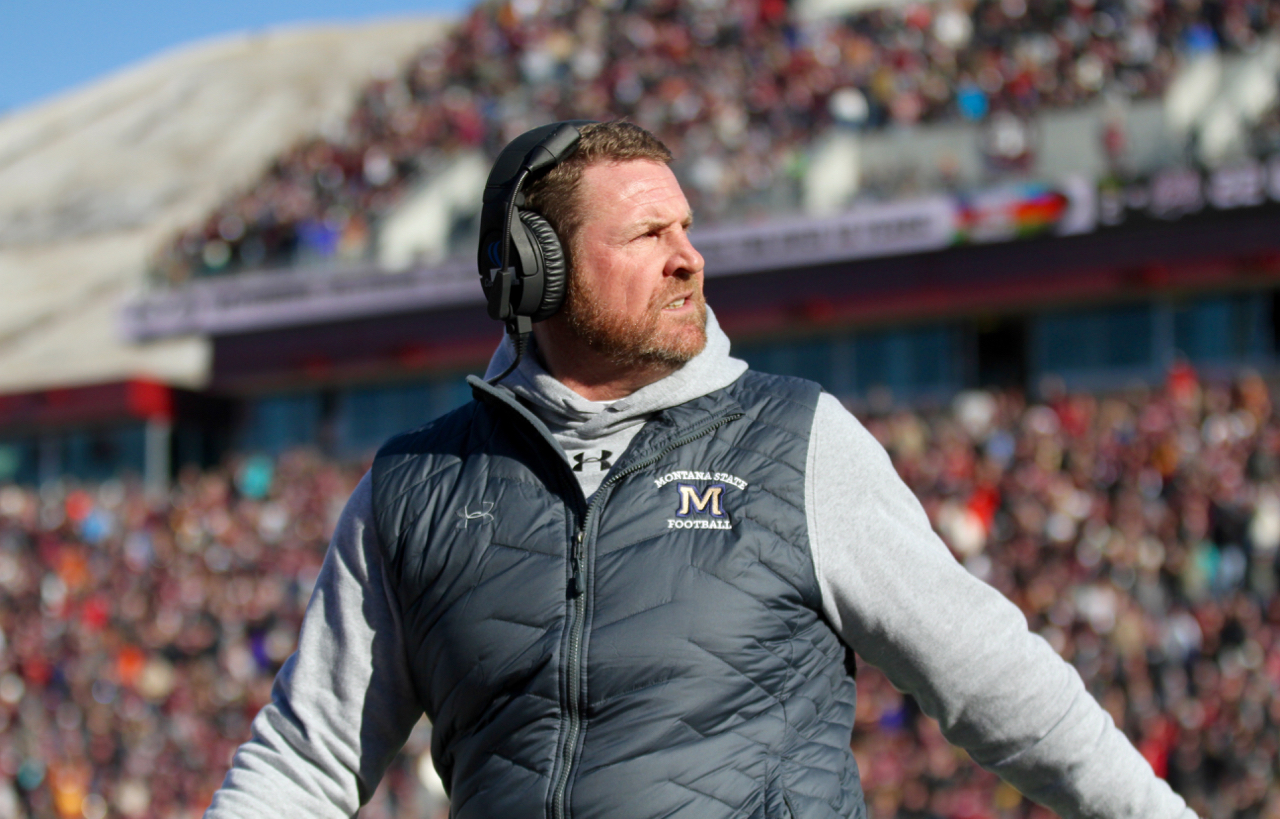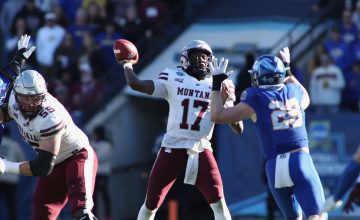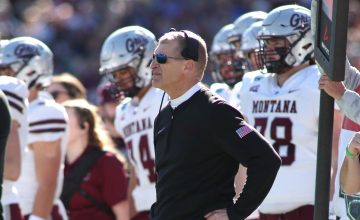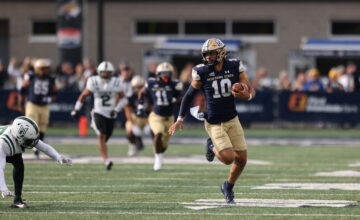Editor’s Note: On January 22 of 2021, Jeff Choate shook up the Montana sporting landscape with his abrupt departure as the head football coach at Montana State to take a position on Steve Sarkisian’s staff at Texas. Choate leaves his position with a variety of proclamations, revelations and predictions for what MSU has been under his direction as well as what the Bobcats can become in the future.
What follows is a six-part Skyline Sports series – The Pillars of Choate: the six ways a head coach changed the Montana State football program for the better.
BOZEMAN, Montana — Mike Kramer beat the Montana Grizzlies three times in four seasons, including posting a victory in Missoula against a team that had won the Division I-AA national championship season the year prior that snapped “The Streak.”
Rob Ash won more games than any Montana State head coach before him. Ash’s 70 wins and three straight Big Sky Conference titles were more than Kramer or national championship-winning coaches like Dave Arnold or Sonny Holland ever secured. Ash won more often than the last Bobcat head coach to move on to a “higher” level – Jim Sweeney, who left for Washington State following the 1967 season.
Yet no football head coach — and perhaps no figure in the modern history of the university save current MSU president Waded Cruzado — altered and influenced the mentality, the sense of belief and the expectation to never take a back seat to anyone, particularly not the Griz, more than Jeff Choate.
The dynamic, driven personality came to Montana State with a vision. He preached that vision with as much passion and ferocity as any football coach the Big Sky Conference has seen. From his ability to profess his goals to his gift for galvanizing every person involved in the entire fabric of Montana State football, Choate is a spectacular figure in the lore of a program steeped in history.
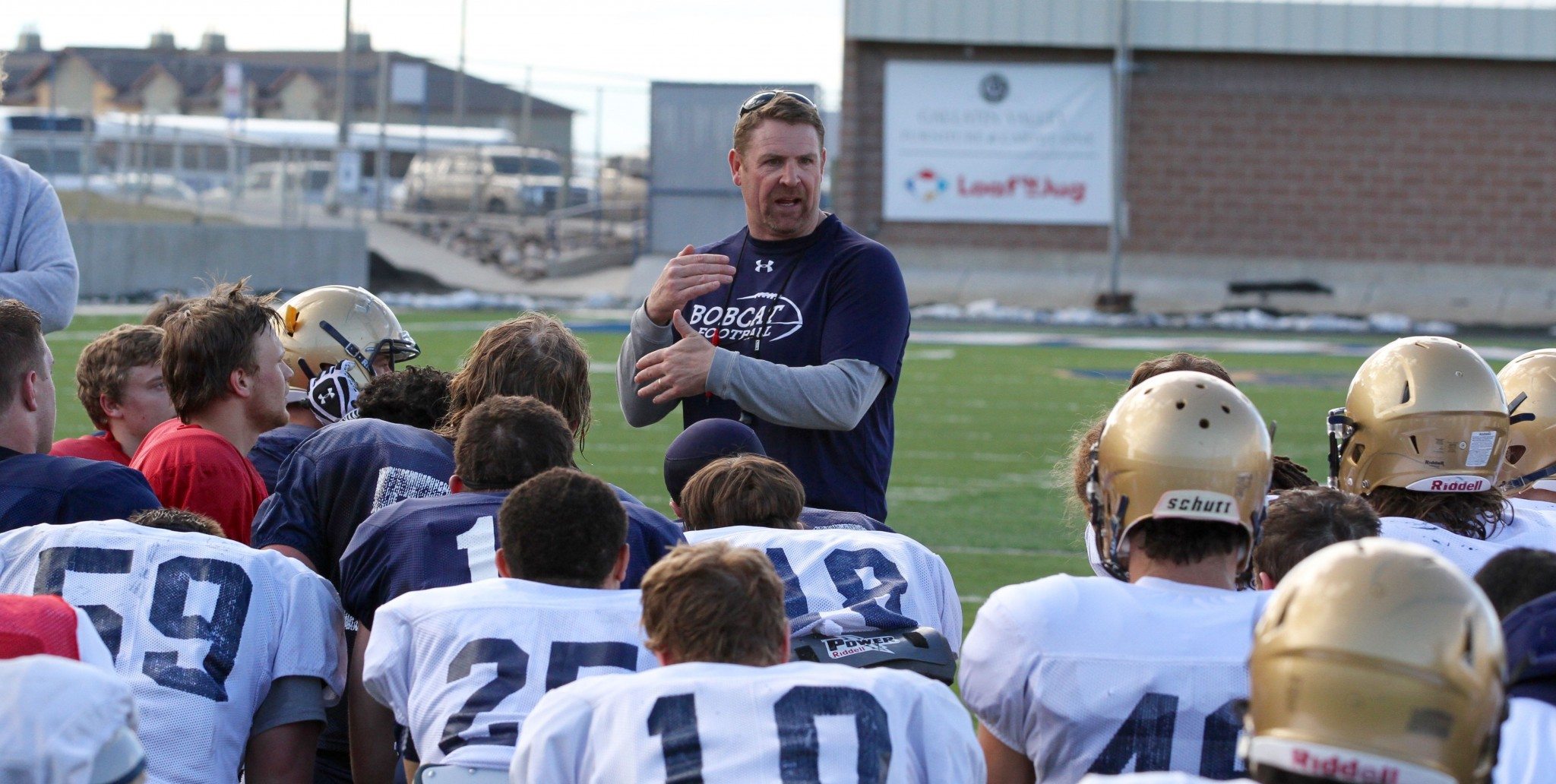
“He built as much unity on campus and in the athletic department as any person I can remember at Montana State,” said one athletic department administrator who has worked at MSU since Ronald Reagan was president.
“He touched everyone by being real and really investing time in people, all people. And that made it so he had everyone in the (athletic department) building, everyone on campus, everyone in Bozeman and nearly everyone throughout the state, every person involved in the Bobcat football organization pulling for him. That is a pretty impressive thing.”
From Choate’s perspective, that element of his ability to galvanize those around him was intentional and direct. It was part of his plan when he first took the job and the reason why he almost completely absolved himself from criticism internally and externally during a fascinating yet short-lived stint leading a storied program with 15 Big Sky titles to its credit.
“We’ve done a really good job of keeping the main thing the main thing,” Choate said in his departing press conference on January 23. “Culture starts with vision. That’s what drives the culture. That’s what you want it to look like. The first piece of my vision here at Montana State was to take care of my people and add value to their lives. Our people, our support staff, I make a point to stop and talk to them every day.
“We wanted to build the culture where everyone in the organization knows we appreciate them and to know that my student athletes know that everyone is here for them. My No. 1 job is to take care of my players and add value to their lives. That’s why we’ve been able to drive this culture. We care about our people and most importantly, we’ve made decisions to do what’s best for our players here at Montana State.”

On the field, Choate will be most well remembered for his 4-0 record against the Grizzlies. From the unlikely 24-17 upset of UM in Missoula in 2016 that kept the Griz out of the playoffs to the 31-23 win over Montana in Bozeman that marked the first MSU home victory over the rival in more than a decade and also signaled the end of Bob Stitt’s time coaching UM; from the insane 29-25 victory in Missoula sealed by perhaps the most memorable goal line stand in the history of the Treasure State in 2018 to last season’s 48-14 lambasting that affirmed that Montana State is little brother no more, Choate’s legacy will always start and end with his ability to slay the Grizzlies.
“No matter where I go, no matter what I do, I will always be able to say I never lost to Montana,” Choate said in his farewell press conference, fully acknowledging the significance to his fan base of the accomplishment and its importance to his legacy.
Choate will also be remembered as a charismatic, magnetic person with an ability to articulate and profess his vision at a truly elite level.
He helped Montana State reestablish an identity of toughness.
He helped the program take care of its players on a level like never before.
He made fans from coast to coast believe that Montana State truly could compete perennially for a national championship.
And he helped the MSU football team catch up to the massive institutional momentum created under Cruzado’s leadership that has also been accompanied by an economic and population boom within the Gallatin Valley that has not been seen in Montana since the height of the Copper Kings in Butte.
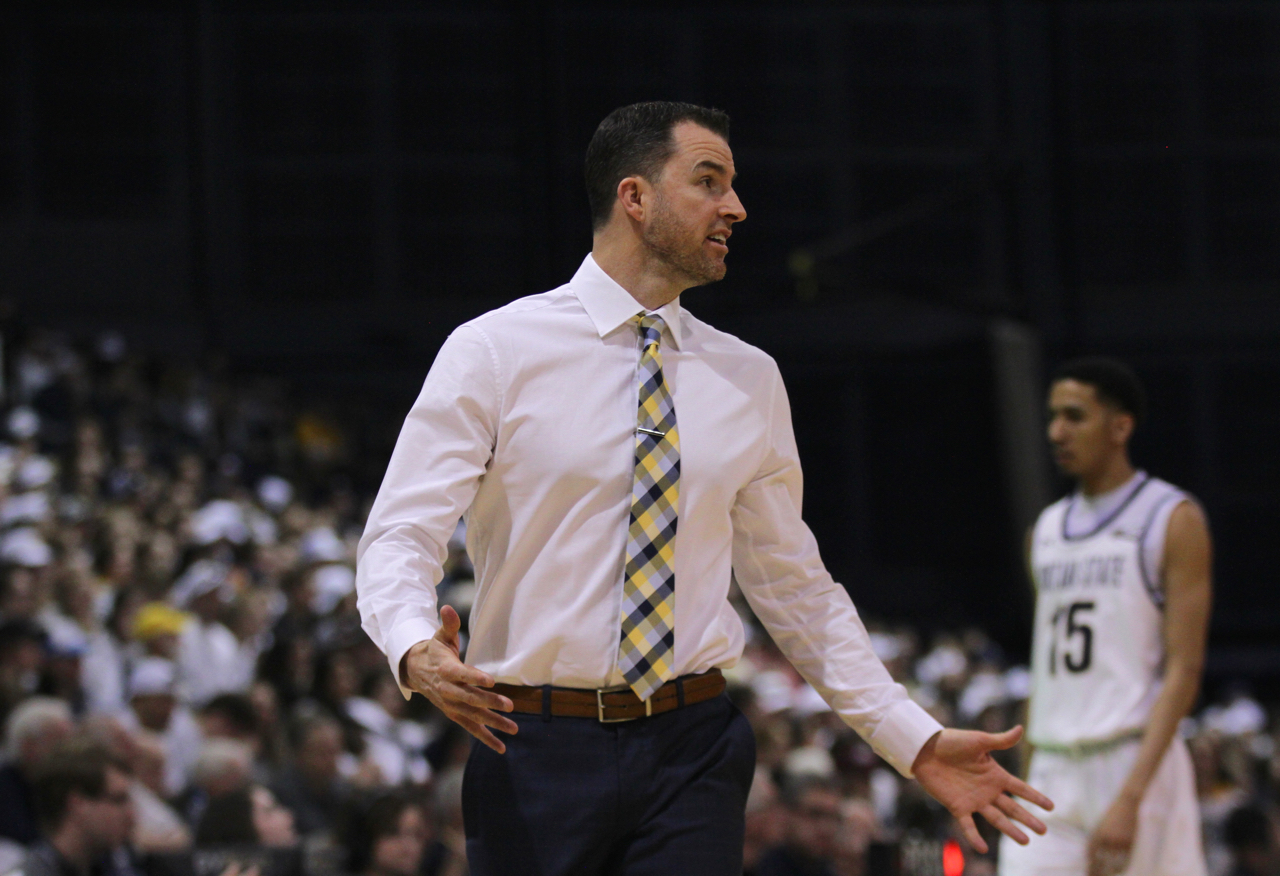
“Choate is like when you are a kid and you might not be all that tough but you are best friends with the toughest kid in school. So you feel invincible,” Montana State head men’s basketball coach Danny Sprinkle, an MSU alum and former standout Bobcat, said in early February. “When you walk around the playground with Choate, you are like, ‘I’m good. Nobody is messing with us.’
“Everything he does, he does with such conviction, it doesn’t matter who you are, he has you so convinced in its authenticity. It’s one thing to talk about it. But he lives it. Every single day.”
Choate’s tenure at Montana State ended with a 28-22 record that included a 7-13 mark against teams ranked in the Top 25. Take away his four wins over the Griz and his three playoff wins against fledgling FCS programs and Montana State won twice in 15 games against the top teams in the country.
He never beat Eastern Washington, Weber State or Sacramento State within the league. Montana State has won six Big Sky Conference championships since 2002. Choate never won a league title.
Yet every slight one could make against Choate’s resume, he had a solution on the horizon. His self-awareness, his realness and his ability to diagnose issues before crafting solutions is what made his leadership style resonate around all of Bobcat Nation.
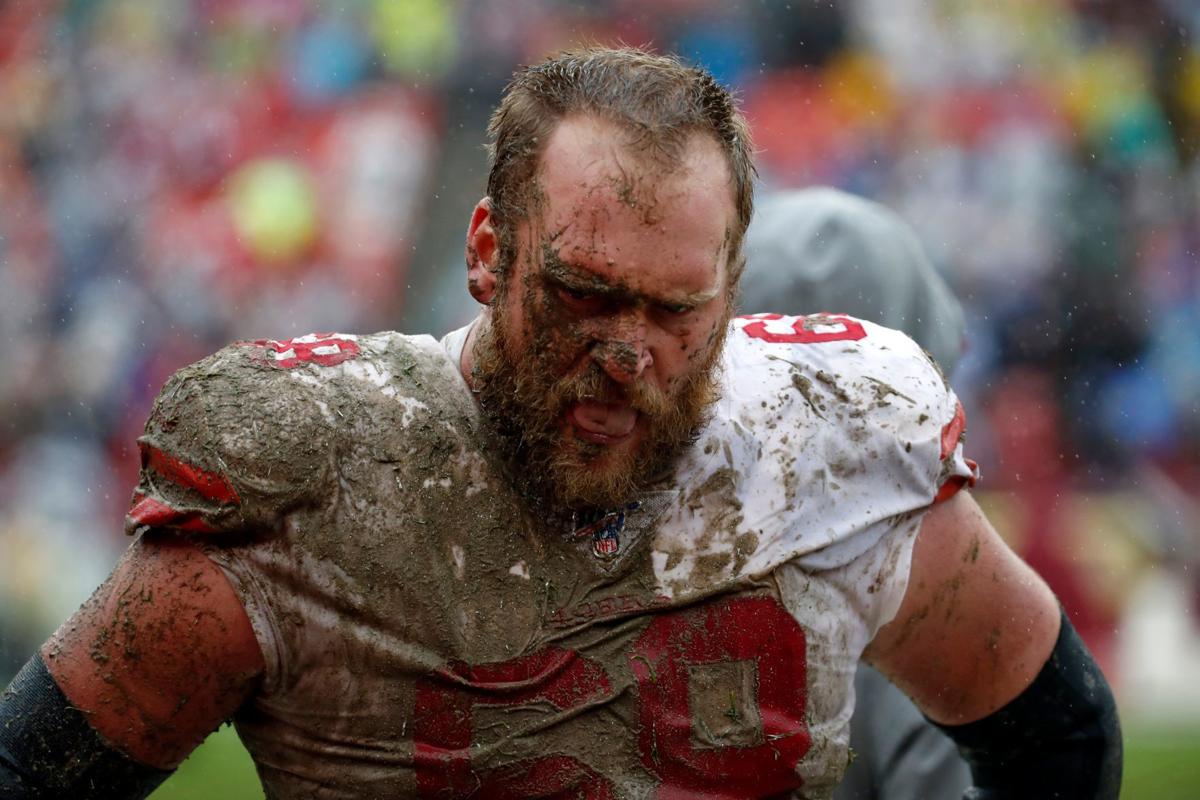
“He brought fans, followers and alums out of the shadows,” former Montana State All-American offensive lineman Mike Person, the captain of the 2010 Big Sky champion Bobcats and a nine-year NFL veteran who recently retired, said in February. “Choate lived this rivalry every day that he was at Montana State. I think the biggest thing is people saw a reflection of themselves to a point in Choate and what he truly believed and preached. They could relate to him. It wasn’t all a show. He truly loves the state of Montana and what it stands for and he truly loves Montana State.”
In 2019, Montana State won six games in a row, including beating the Griz by the largest margin of victory in more than 40 years. The streak also included wins over Albany and Austin Peay in the FCS playoffs to earn the first semifinal postseason bid in 35 years at MSU.
Yet last spring when the pandemic first hit, Choate remained utterly unsatisfied.
“It’s pretty damn easy to stay motivated because Team 122, what they did last year, we get nothing for that,” Choate said in a one-on-one interview with Skyline Sports in May of 2020. “We start with that: this is about Team 123. Let’s erase what happened a year ago and get what we need to accomplish now.”

A few of the primary goals Choate defined for the MSU program included his “pyramid”, which has different building blocks like going undefeated at home and winning a Big Sky Conference championship. But Montana State lost 34-17 on homecoming to eventual Big Sky champion Sac State in 2019, thwarting both of those goals. MSU’s 12-10 loss at UND the following week put the Bobcats’ backs against the wall and further solidified MSU would have to wait at least another season to claim its first Big Sky title since 2012.
“Our (2019) team didn’t accomplish the things we wanted,” Choate said. “There are still things out there for us to do. And the standard will not go down. We are just going to keep raising the bar.
“I’m more hungry right now as a coach than I have been since I’ve been at Montana State because I know how close we are. The 2,000 feet before the summit at Everest, the death zone, it gets harder up there, it doesn’t get easier. That’s what we have to remember. It’s not going to get easier. It’s going to get more challenging, more difficult and because of that, we have to have our preparation right where it needs to be.
“The most elusive thing in sports is consistent, steady improvement and it’s difficult because everyone wants it RIGHT NOW. Everyone wants to be the winner, everyone wants to take the best looking girl to the prom. But it’s hard because you have to keep grinding.
“And even when you get there, the cool thing about it to me is, once you get there and you are respected, you have the ability to compete for championships, you have the ability to set higher goals, your DNA can’t change. We are still grinders. That’s what got us here. And that’s the thing we have to guard against now. It’s what we have to continue to be.”

That hunger was a key to helping Montana State revitalize what was previously broken about its program during the waning demise of the Ash Era. As former Montana State offensive line coach Jason McEndoo once said, “the greatest plagues of an elite college football program are entitlement and complacency.” Regardless of success, Choate never let those factors creep in despite MSU’s historic accomplishments under his direction.
“I don’t think you maintain anything; I think you get better or you get worse,” Choate said in the spring. “And that’s what will happen to us this year. We will have to be a different team to get to the next level.
“We are at that place in the program where we have a lot of talent and experience and leadership walking out the door but we have reached the point as a program where in our exit interviews with our players, Team 122 had great chemistry and that’s why we won. Period. They didn’t equate our success to talent. They get it. Teams win.”
In front of Bobcat Stadium sits a statue of Holland, a man who helped lead MSU to the NAIA national championship in 1956 as a player before winning 47 games, including a run to the 1976 Division II national championship, as the head coach at his alma mater between 1971 and 1977.
Holland is one of four MSU players to have his number retired. And Holland is the only Bobcat, as of yet at least, memorialized in Bronze. One Bobcat booster joked (sort of) that Choate might be the next coach to get himself a statue in front of the stadium.
So much of that legend centers upon Choate’s epic history in the rivalry and his reputation as a “Griz slayer”. Between his time as a player and a coach, Holland went 10-1 against Montana. But he had the one loss.
The only coach with an undefeated record during the Big Sky era of the Cat-Griz battles (beginning in 1963) is former Montana head coach Don Read, who led UM to the first 10 wins of the 16-game streak the Griz once held.
And Choate started winning the Cat-Griz rivalry before he ever coached in a rivalry game. One of his first gigantic splashes upon taking the MSU head job was to hire longtime Griz assistant coach Ty Gregorak to become his defensive coordinator, basically stealing one of the greatest purveyors of passion within the rivalry from the enemy and making him a gigantic influence in the next three showdowns to the Bobcats’ advantage.
And the 2019 MSU victory resounded voluminously, essentially closing a chapter and opening a new one. The victory was the largest margin by a Bobcat team over the Griz since Holland was the head coach. The four straight wins by MSU is also the longest Bobcat streak since the mid-1970s. Since “The Streak” ended in 2002, Montana State and Montana have now each won nine games in the last 18 rivalry matchups. And the 2019 win also gave MSU the last decade, helping the Bobcats seal the 2010s with a 6-4 advantage over UM.
“There was always this thing where the Montana guys grew up with the little brother syndrome but I resent the hell out of that and I don’t even know what that means,” Choate said. “I don’t know what that means. It’s bullshit. I’ve never experienced that in my life as a competitive human being. I’ve never experienced a complex.
“I’ve been at Boise State, I’ve been at Washington. I’m not the little brother. And if you want to walk between the white lines and find out, let’s go. That’s the best attitude I want to bring to the table. That’s what I demand our teams believed.”
The possibility of Choate walking away from the impressive organization he certainly put his stamp on first gained traction in early January when he rose to the front of the line to replace Bryan Harsin at Boise State. When Andy Avalos ultimately earned the position, it seemed like Choate would reengage in leading Montana State to unseen heights in the 21st century.
Instead, Choate bolted for a position on the staff of one of the great offensive minds in the sport at one of the most thoroughly funded and historic football programs in the United States.
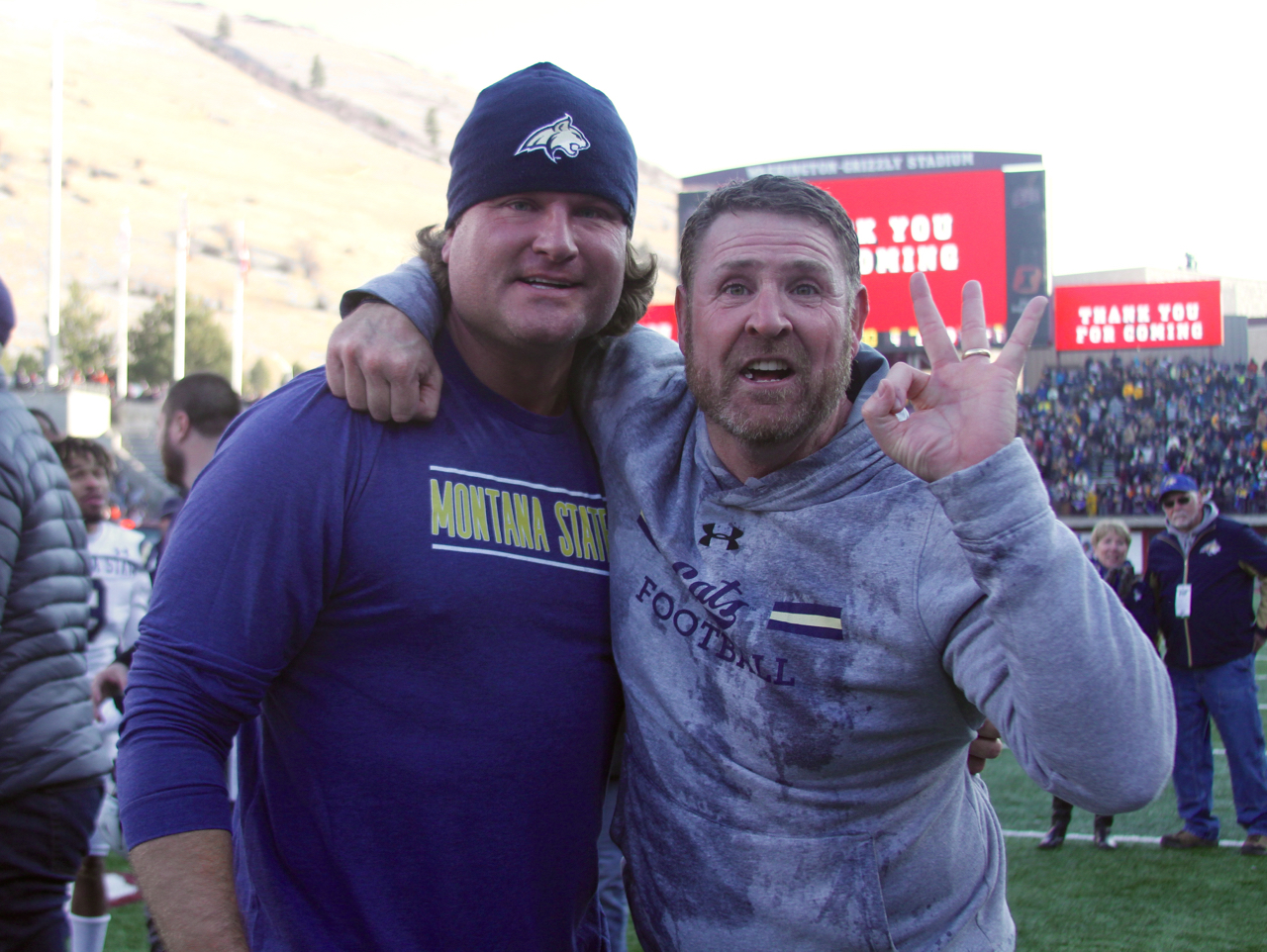
Although Choate’s departure was unpredictable and surprising, in reality, the move exemplified the culture the unforgettable coach wanted to construct and the imprint he hopes he left at Montana State.
“I’m a man of principle and conviction,” Choate said in his final press conference as MSU’s head coach. “If I’m going to talk to these young men about if you want to take a jump, if you want to be great, if you want to achieve your goals, if you want to live your dream, you are not going to get that by standing on the sidelines.
“Go put yourself out there, be your best self and whatever happens, you can live with it. I’ve tried to live my life with no regrets and I have absolutely no regrets about my time at Montana State. I love this place.”
Photos by Brooks Nuanez. All Rights Reserved.

